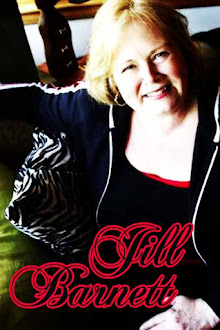Close, but no cigar
When an author takes a theme, which may not be prove very popular and attempts to turn it
 into a good romance, I always keep my fingers crossed. Of course, an author can always take the easy way out and write about something safe. In An Earl Like You, Caroline Linden has undertaken a set-up which changes the hero into someone not quite so heroic, something not safe. I must give Ms. Linden some kudos for the attempt, even though I don’t think she quite succeeded. This was just me - I became very irritated with the hero. But I think the problem lies not with the hero but the heroine. Let’s take a look at my reaction to this book, because in the end it is all about me.
into a good romance, I always keep my fingers crossed. Of course, an author can always take the easy way out and write about something safe. In An Earl Like You, Caroline Linden has undertaken a set-up which changes the hero into someone not quite so heroic, something not safe. I must give Ms. Linden some kudos for the attempt, even though I don’t think she quite succeeded. This was just me - I became very irritated with the hero. But I think the problem lies not with the hero but the heroine. Let’s take a look at my reaction to this book, because in the end it is all about me.Let’s start with Hugh Deveraux, Earl of Hastings. Hugh idolized his father. His father was a wonderful man. His father also loved his wife and family. He would do anything to make them happy, that included spending copious amounts of money building things, buying things, being just as careless with money as he could possibly be. So, when he dies he leaves behind a mountain of debts and as far as we know there is no way to repay them. Here was the first of many hurdles for me, the reader, to climb over. Ms. Linden put so many road blocks in our hero’s way, and the only solution, of course, was through marriage. I’ve always questioned the amount of money a heroine would have to bring into the marriage to reclaim some of the huge estates which litter the English countryside and not go broke herself. But, that is just a passing thought, the real issue I had with Hugh was when he found out the condition his father had left his family in he didn’t tell his family. That was a big short-coming for me. These were the people who were directly affected by his decision to keep the debts secret – his mother and sisters. Then there was his "hero plan" on another way to get out of debt. He would go to a gambling hall and gamble. What a great solution to money problems! I thought these were gi-normous character flaw in a hero and it made him appear weak. But for me there was something else which made him seem weak – the heroine.
Eliza Cross. Eliza was a nice person – really, really nice. And, even though she was pretty much aware of her gigantic worth to aristocratic males which populated England, she wanted some one who loved her for more than just her money. She wanted someone who loved her. She seems to have an inner radar built in which could spot a money-grubber from far, far away. But it isn't working when it come to Hugh. Here’s the thing, Ms. Linden has written Eliza’s character as very naïve when it comes to our handsome hero Hugh. For some reason, she just cannot see his deception. And, his courtship is a deception. A big deception. Her father is coercing Hugh into courting, marrying and impregnating Eliza.
The deception. This is not the first time in a romance book the hero has deceived the heroine. Some of those books work and some of those books don’t work. This one almost worked. Ms. Linden did a wonderful job of letting us into Hugh’s mind as he struggled with his deception, but for me I could find no sympathy for him. The problem for me was Eliza’s character was toooooo nice, toooooo naïve, tooooo accepting, toooo good. Her sweet character was not a good balance for Hugh’s underhanded courting. The sweeter Eliza became, the weaker Hugh became. Eliza’s goodness only made Hugh’s indecisiveness all the more obvious. When we look at our heroes, whether they are Alpha or Beta, even when we are presented with their flaws and weaknesses, we like to find some nobility in their character. I could find none in Hugh and that was mainly because the balance between Eliza’s goodness and Hugh’s deception was off. Eliza needed to be just a little bit more aggressive, she needed to be someone Hugh could bounce off of. I wish she had caught on to him sooner and had realized all by herself what he was up to.
Bottom-line. I was looking forward to Ms. Linden’s book. I congratulate her on her attempt at a hard plot-line to do in Romanceland, but for me it didn’t work. Eliza and Hugh did not balance each other out; they did not cast positive reflections off of each other. So I cannot fully recommend this book. How's that for wishy-washy?
Time/Place: Regency England
Sensuality: Warm/hot






No comments:
Post a Comment